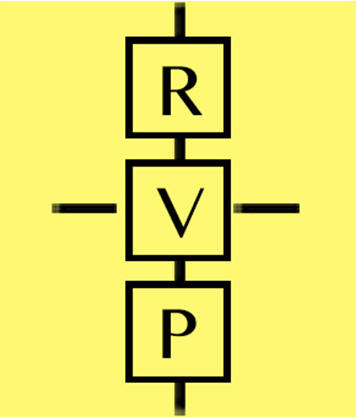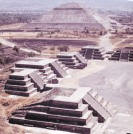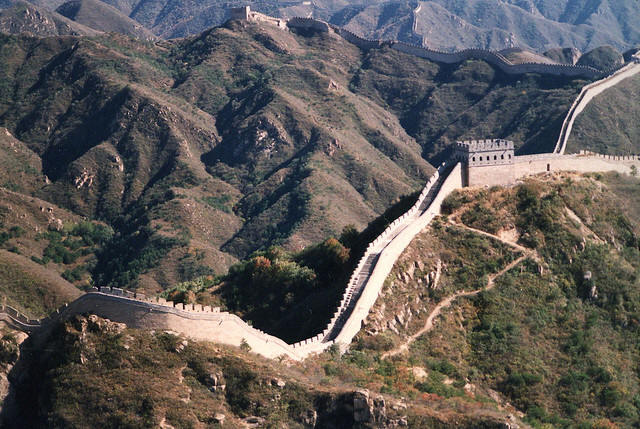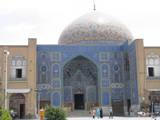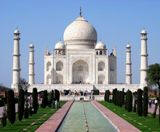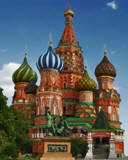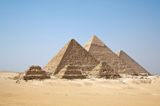|
AN INVITATION
THE ANNUAL SEMINAR
Diversity in Unity
September 5 -
November 10, 1994
Washington, D.C.
The
Problem
This Century
could be read as a dialectic of unity and diversity. The
first half of the century engaged the enthusiasm of
peoples in major, indeed terrorizing, campaigns of
unification. Totalitarian systems took hold from the
Atlantic across Europe and Asia to the Pacific; through
pogroms, death camps and mass deportations when deemed
opportune all was homogenized. In North America the
melting pot approach to immigrants made differences an
impediment and a personal shame. Over distant lands nets
of empire--political and commercial--were cast.
Unity came to
reign so supreme and with so heavy a hand that the last
50 years have been preoccupied largely with breaking its
stranglehold over the life of mankind. These have been
the major markers of our memory: the war against Fascist
totalitarianism; the breakup of the empires; the
recognition of the rights of minorities, whether ethnic,
national, gender; and the collapse from within of the
forced communist uniformism.
Where does this
leave us at this transition between millennia; has the
20th century been wasted in a difficult, indeed deadly
and as yet unresolved, isometric of unity and diversity?
In fact, the agenda of conflict at the present time:
from the reactions against immigrants in Western Europe
or against other races in America, to massive attacks
upon whole peoples in Yugoslavia, the Caucasus, India,
etc., etc., could lead one to despair of human harmony.
The deadly dilemma of our day is that the assertion of
one's own distinctiveness seems too easily to imply
attacking others simply because they differ, ignoring
and destroying all bonds of unity; whereas the effort to
achieve unity is interpreted as requiring the
suppression of the access of peoples to the cultural and
religious wellsprings of their identity and thereby the
very roots of their sense of unity with others.
The
Challenge
Must the coming
century be a replay of the last or, worse still, the
perpetuation of our present quandary, marked by a
collapse of mutual respect, the destruction of the roots
of a person's values, virtues and goals, and a breakdown
of civil cohesion? Or is it possible to see the very
diversity of persons and peoples as the resource
enabling us to related more intimately, to cooperated
more actively and to create more profusely what lies
within the unfulfilled agenda of human hopes. If so
diversity must be turned into cooperation and unity into
empowerment so that the lion might lie down with the
lamb, swords be beaten into plowshares, and new horizons
of human progress can beckon us beyond conflict to new
levels of unity.
In our present
condition this is not a formula but a destiny, not an
ideology but a task, not an utopia but a direction. What
is needed in order to take up our task and to move in
the direction of our hopes is concentrated effort
drawing upon both the experience and values of the many
cultures and religions, and the scientific rigor of the
empirical sciences. The two must be bonded through the
development of theoretical interpretations which make it
possible to see diversity as a key to unity and unity as
enabling diversity. How can this be achieved?
Themes:
I. The
Diversity of Persons and Peoples
In the aftermath
of forced processes of assimilation and uniformity the
value and importance of diversity has come vividly to
the consciousness in our times. In Central Europe, in
the afterglow of the revolutions which signalled the
collapse of Communist universalism, people have begun to
celebrate their uniqueness and diversity. In Western
Europe the project of unity is being delayed until the
reality of national and even regional differences can be
taken into accounted. In North America the melting pot
has been followed by a recognition that at bottom we are
a nation of minorities whose history has ever lain
primarily in the process of assimilating new and
increasingly different immigrant groups. What had been
the vast empire of the Soviet Union is now undergoing a
process of redefinition and reorganization according to
the differences of its peoples.
With this
celebration of freedom comes pride in the
accomplishments of our people, renewed commitment to the
values they have shaped and new ways of exercising the
virtues they have formed. But with the good comes also
evil, and this process has unearthed ancient prejudices
and even antipathies, memories of oppression and even of
atrocities. Close upon the flush of new awareness of
freedom there has followed the fear of new menaces.
Defensive reactions, in turn, now lead to failure of the
will to cooperate and even to a downward spiral into a
pit of suspicion, rejection and mutual attack which
seems without bottom.
Hence, the
eruption of human freedom in our day presents a double
challenge. On the one hand, it means new recognition of
the difference and distinctness of peoples. If peoples
are to realize their humanity this diversity must be not
only tolerated but promoted. Progress will consist in
the ability to harvest the results of the creativity
this unleashes.
This project must
be realized in such manner that diversity does not end
in conflict. Differences must be channeled toward
interchange of peoples with a view to cooperation and
mutual promotion.
What are the
ultimate cultural and religious principles for diversity
which can promote such cooperation; what are its
psychological and sociological mechanisms; how can these
be protected and promoted in legal and political
structures.
All this is the
urgent task of this seminar, and indeed, of our day.
II. The
Unity of Cultures and Religions
At the end of this millenium we face a twin dilemma. On
the one hand, the contemporary resurgence of the sense
of cultural identity calls for attention to, and
promotion of, the diversity of peoples. But, as the
senses of freedom, distinctiveness and diversity emerge
ever more vividly in human consciousness, we experience
the ways in which diversity can, and indeed has already
begun to degenerate into conflict--into Hobbes' savage
state in which man is wolf to man. On the other hand,
the emergence of technology and the intensification of
economic interchange call for ever greater unity and
even uniformity. Indeed, we know that peace and harmony
are the conditions of growth and development, whether of
a child or of a people. But from the first half of this
century we know how the call for unity can entail
suppression of the freedom, identity and diversity of
peoples.
Hence, the
increase of the pressure of numbers, of the
interdependence of workers and nations in industry and
commerce, and of the penetration of the media of
communication into the very households of the world,
make it ever more urgent that progress in developing a
more subtle sense of unity be kept in step with the
development of the new sense of diversity.
Concretely, the
challenges are multiple. What are the possibilities and
requirements of peace and cooperation in families and
neighborhoods? What are the conditions of just
collaboration between the many groups and sectors of a
complex, pluralistic enterprise of nation? Both
nationally and internationally, what are the bases for
reaching beyond self centered interest in order to live
in harmony with peoples of notably different cultures
and traditions? More deeply still, are the philosophical
and religious roots of the various cultures able not
only to be compatible one with another, but to inspire
peoples to reach out beyond themselves with respect and
concern for what others are and would make of their
future?
We cannot suppose
that these issues have ready answers, for the questions
themselves are being raised in new manners and with ever
greater scope and intensity. The sense of diversity is
held with new passion, the range of diverse peoples and
cultures has new extent, their interaction is more
intense and pervasive. Hence, unity in diversity cannot
be achieved merely by new techniques; it requires a more
refined appreciation of psychological and social
dynamisms, as well as a new and penetrating
understanding through the humanities and religious
sciences of the well springs of human meaning and
aspirations.
The exploration
of these challenges will be the work of this seminar.
The
Response
For this there
are significant and promising resources. The humanities
(history and literature) can uncover the values of the
various cultures. The social sciences (psychology,
sociology and economics) can contribute understanding of
the structures of the world in which we live. Above all,
it will be necessary with these to think together, in
order to understand the way in which human freedom is
open rather than closed, and how self-assertion consists
in reaching out to others.
|

